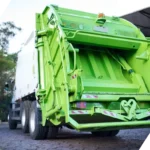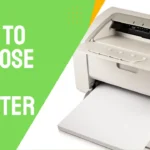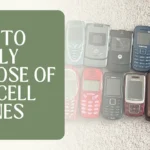If you’ve upgraded to a new computer, you might be wondering what to do with your old one. Simply throwing it in the trash isn’t a good idea. Old PCs contain personal data and electronic parts that can harm the environment if not handled properly.
In this article, we’ll show you how to dispose of an old PC the right way—whether that means donating, recycling, or safely selling it. Let’s break it down step by step.
Step 1: Back Up Your Files
Before doing anything else, make sure you save your important data:
- Copy your photos, videos, and documents to an external hard drive.
- Use cloud storage like Google Drive, Dropbox, or OneDrive.
- Double-check that everything important is backed up before you move on.
Why? You don’t want to lose memories or important work files.
Step 2: Remove Your Personal Information
Your computer holds personal information like saved passwords, email access, and even bank logins. Here’s how to wipe it clean:
- For Windows: Use the “Reset this PC” feature and choose the option that removes everything.
- For Mac: Use Disk Utility and reinstall macOS.
- For extra safety, use data-wiping software like DBAN (for hard drives) or Eraser to securely delete files.
Step 3: Uninstall and Deauthorize Software
If you have paid software (like Microsoft Office, Adobe, or iTunes), don’t forget to:
- Sign out of your accounts
- Deactivate licenses so you can use them on your new PC
This prevents others from using your software and lets you reuse your licenses.
Step 4: Decide What to Do With the PC
Now that your data is safe and your computer is clean, decide what’s next.
Option A: Donate It
If your old computer still works, give it a second life by donating it:
- Schools and libraries often accept working devices.
- Nonprofits like Goodwill or PCs for People offer drop-off locations.
- Some community centers run digital literacy programs and love getting donated tech.
Option B: Sell It
Even older PCs can be sold if they’re in decent shape:
- Try online marketplaces like eBay, Facebook Marketplace, or Craigslist.
- Be honest about the condition, include photos, and wipe all your data first.
Option C: Recycle It
If the PC doesn’t work or is too old to donate:
- Find a certified e-waste recycler like junkisremoved. Look for programs certified by R2 or e-Stewards.
- Retailers like Best Buy, Staples, and Office Depot offer electronics recycling at many locations.
- Check if your computer’s manufacturer has a take-back program.
Never throw a computer in the regular trash—it can leak harmful materials into the environment.
Step 5: Remove and Recycle the Battery
If your PC has a removable battery:
- Take it out and recycle it separately.
- Batteries should go to a certified battery recycling center.
- Many stores like Home Depot and Lowe’s accept used batteries.
Step 6: Try Local Pickup or E-Waste Collection Events
Some cities offer free pickup or e-waste drop-off events where you can safely dispose of electronics.
- Check with your city or county’s website for upcoming events.
- These programs are usually free and environmentally friendly.
Step 7: Keep a Record (Optional)
If you donate or recycle, some organizations provide a receipt. You might be able to:
- Use it for a tax deduction.
- Keep proof of proper disposal for business compliance.
Summary: What You Should Do
| Task | Why It’s Important |
|---|---|
| Back up your data | Prevent loss of files |
| Wipe your PC | Protect personal information |
| Deauthorize software | Reuse licenses on new PC |
| Donate or sell | Help others or earn some cash |
| Recycle | Prevent environmental harm |
| Remove batteries | Handle hazardous waste safely |
| Use local services | Convenience and sustainability |
Why Responsible Disposal Matters
Every year, millions of tons of e-waste end up in landfills. By disposing of your PC properly, you:
- Protect your data
- Avoid polluting the environment
- Give others access to affordable technology
Common Questions (FAQs)
Can I throw my old PC in the trash?
No. Computers contain hazardous materials like lead and mercury. Always recycle or donate.
What if my PC doesn’t turn on?
You can still recycle it or sometimes donate it for parts.
Can I keep the hard drive and recycle the rest?
Absolutely! Just make sure to safely remove it and store it securely.
How do I find a computer recycling program near me?
Search online for “computer recycling near me” or visit websites of local retailers or city services.
Final Thoughts
Disposing of your old PC doesn’t have to be complicated. With a few careful steps, you can keep your data safe, protect the environment, and maybe even help someone else. Whether you choose to donate, sell, or recycle, making a responsible choice matters.









